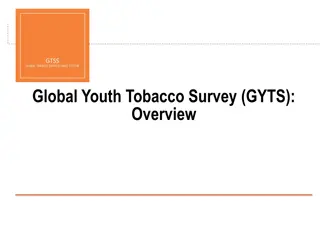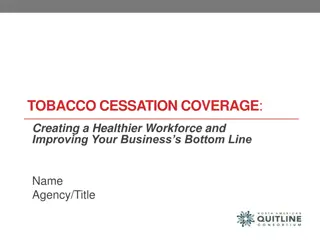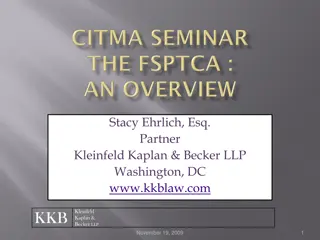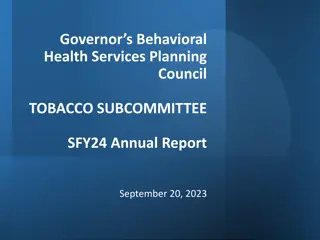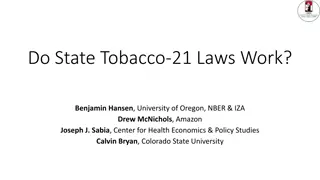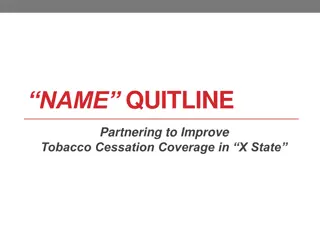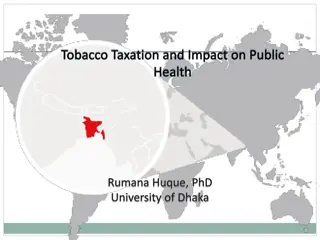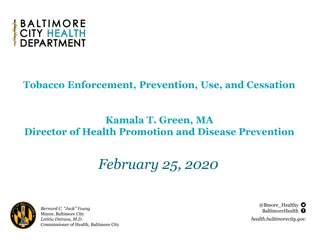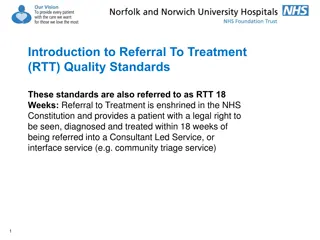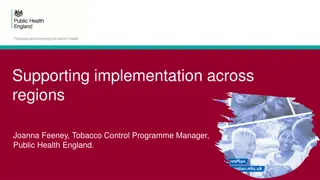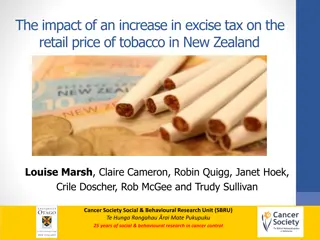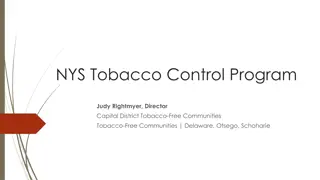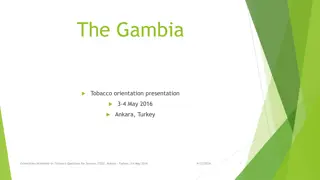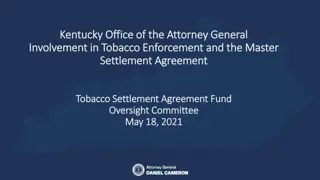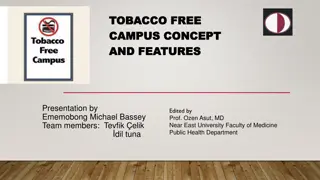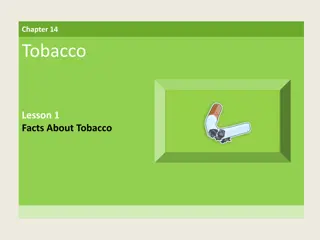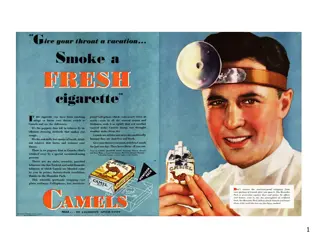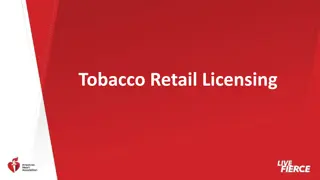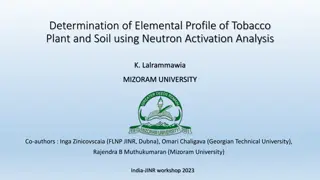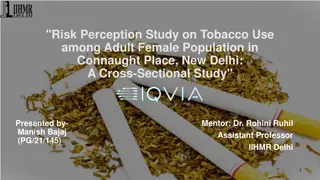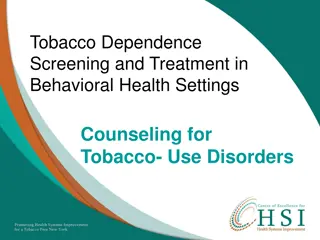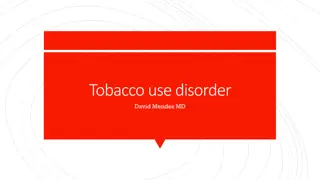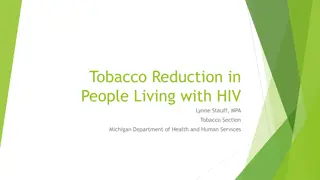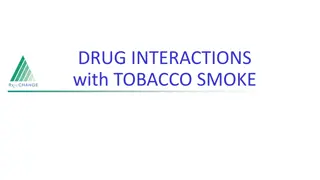Effective Strategies for Tobacco Treatment and Referral
This presentation explores key objectives for webinar participants regarding tobacco treatment services, clinical referrals, and quit rates among patient populations. It emphasizes the chronic nature of tobacco use, evidence of effectiveness in providing advice, and the importance of asking, assisting, and referring patients for treatment. Strategies such as electronic referrals and meaningful advice are discussed, highlighting the critical role practitioners play in supporting patients in overcoming tobacco dependence.
Download Presentation

Please find below an Image/Link to download the presentation.
The content on the website is provided AS IS for your information and personal use only. It may not be sold, licensed, or shared on other websites without obtaining consent from the author. Download presentation by click this link. If you encounter any issues during the download, it is possible that the publisher has removed the file from their server.
E N D
Presentation Transcript
Christin DOvidio JSI Research and Training Institute, Inc.
Objectives for this Webinar Participants will: Understand 1-800-QUIT-NOW quitline tobacco treatment services Understand QuitWorks-NH clinical referral resource to tobacco treatment services
Do you know What % of your patient population uses tobacco? What % of the patient population has been referred for tobacco treatment? What was the outcome of that treatment was? What is the quit rate among patient population?
Treating Tobacco Use and Dependence 6,000 research articles Dose-response Multiple medications Counseling Quitlines are effective
Tobacco Use is a Chronic Disease Today s tobacco products contain higher amounts of nicotine More addictive Results in current medications losing effectiveness Self-medication with nicotine to cope with underlying mental health conditions Practitioners advice makes a difference Requires repeated interventions- Motivational Interview skills are critical Remains on the Problem List
Evidence of Effectiveness Advice Research Arms Estimated odds ratio (99% C.I.) Estimated Abstinence Rate (99% C.I.) 7.9 No advice to quit 9 1.0 Physician advice to quit 10 1.3 (1.1 1.6) 10.2 (8.5 12.0)
Ask, Assist and Refer for Treatment Common practice within Concord Hospital and affiliated offices EHR vendor flexibility ICD 10 codes for tobacco use/dependence Electronic referral protocol to any medical specialty group http://www.icd10data.com/ICD10CM/Codes/F01-F99/F10-F19/F17-
What is Meaningful Advise? Stage of readiness is critical Meet the patient where they are Message care, compassion and support Ask THEM what they want
Self-Referral 1-800-QUIT-NOW (1-800-784-8669) You have reached Press 1 for English How may I help you? www.QuitNowNH.org On-line Enrollment June 2017 On-line Quit Coaching!!
QuitWorks-NH.org is HIPPA compliant: Paper fax Electronic fax eReferral using C-CCD Contact Teresa Brown BS, TTS at NH Tobacco Prevention and Cessation Program Division of Public Health Services Teresa.Brown@dhhs.nh.gov 603-271-8949
What Professionals Need to Know Referrals to QuitWorks-NH are received at National Jewish Health Hospital s Call Center for Integrated Health-Denver Colorado Over 100 trained Quit Coaches Out reach calls are within 24 hours (1-800-784-8669) 3 calls in 3 days-they leave messages Feedback reports sent to the referring professional
What Patients Need to Know Out reach calls show up as 1-800-784-8669 Auto-dialed then connected to Intake Specialist Split-second lag time with a click before Intake Specialist says anything 5 Minute Intake Screener must be completed before transferred to a Quit Coach There is a 30 second HOLD to connect to a Quit Coach
Quality Improvement Project Choose a Hospital Unit or Office Practice Assess patient population for tobacco use Assess co-morbidity among this population Assess current workflow for treating these patients Insert Quit Now NH into the workflow based on training and technical assistance from NH Tobacco Prevention and Cessation Program Plan Do Study Act cycles
Resources https://www.bhwellness.org/resources/videos/ conversations-for-change-series www.cdc.gov/tobacco www.QuitNowNH.org www.QuitWorksNH.org www.ATTUD.org


